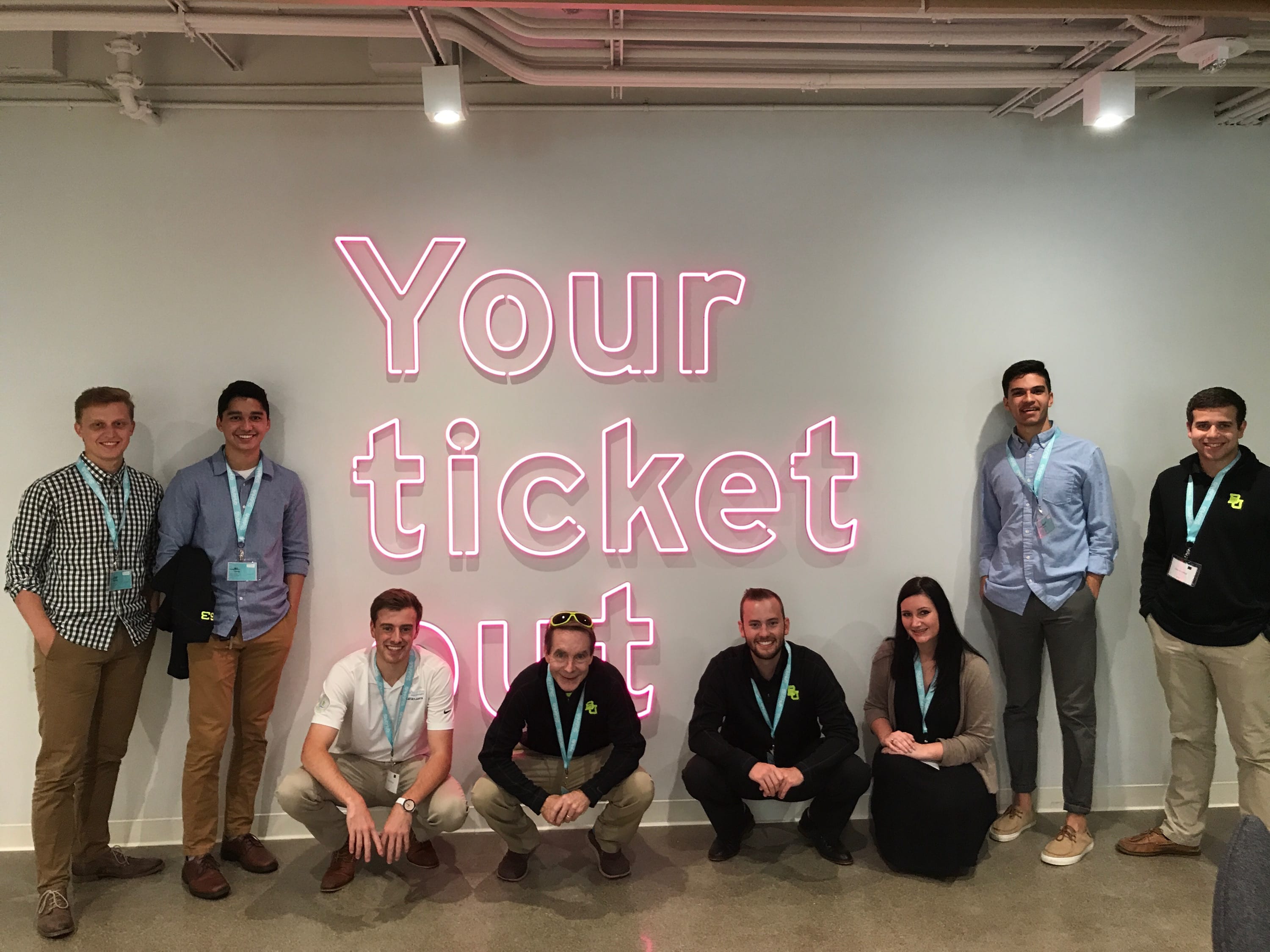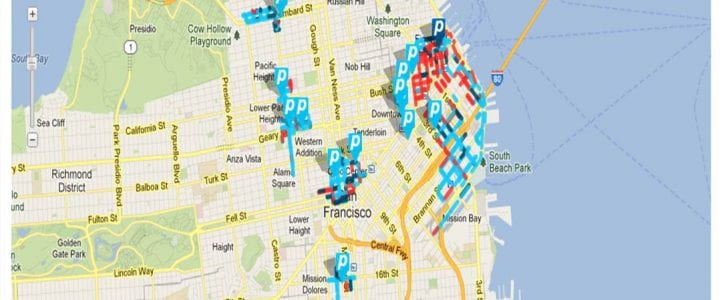by Brad Sherrill – September 2017
StubHub and Baylor S3
StubHub and Baylor S3 created a partnership to reward motivated, analytically-talented S3 students with an expenses paid trip to the Bay area. The inaugural S3 StubHub Analytics All-Stars group visited San Francisco for three days, gaining valuable interaction time with representatives from some of the Bay’s sports industry leaders. Thanks to StubHub’s generosity, we spent three days visiting with executives from StubHub, Golden State Warriors, San Francisco 49ers, San Jose Sharks, and San Francisco Giants.
S3 Senior Ian Young said, “It was great to see the variety of career paths people have taken to get to where they are in the sports industry. I really got a feel of how closely connected people are in the sports industry and how best practices are shared among teams.” Young also commented on the value of being data-driven as an organization. Each organization relies on a data strategy to generate revenue utilizing analytics, CRM, and BI/BA to derive actionable insights.
[slideshow_deploy id=’9986′]
The StubHub Data-Driven Culture
Our group began the circuit of Bay area sports and entertainment properties by visiting StubHub’s corporate offices. Located in downtown San Francisco, the office encapsulates much of the Silicon Valley atmosphere and emphasis on creating a comfortable, enjoyable work environment.
S3 students received a tour of the office followed by interactive panel discussions with six StubHub employees whose positions touched many of the company’s various focuses. S3 Senior Jonathan Roselli found value in “understanding how analytics are used to report, optimize and predict performance.”
Adam Budelli headed the panels that included Charlie Rockman, Raymond Delacruz, Mena Alsrogy, Ryan McDowell, and Adam Tatum. These professionals work in areas covering partnerships, business development, data management, analytics, consumer insights, data science, business operations, and marketplace supply chain analysis.
Join us!
If you are interested in the Sports Sponsorship & Sales (S3) program at Baylor, visit www.baylor.edu/business/s3. Prospective students and transfers can find out more about their tickets to a career in sports. Like StubHub and other S3 Leadership partners, organizations can learn about supporting the growth of talent for the industry by visiting www.baylor.edu/business/s3/board. Look for more stories with insights from executives we met at the Warriors, 49ers, Sharks, and Giants in the coming weeks.
Since launching the first Sports CRM & Analytics track in the U.S in 2011, the S3 program is the leader in placing graduates in data analytics roles at teams [Dallas Cowboys, Dallas Mavericks, Dallas Stars, Houston Astros, Houston Dynamo, Houston Texans, San Antonio Spurs, Madison Square Garden, New York Yankees, Denver Nuggets, Columbus Blue Jackets, Orlando Magic, Miami Dolphins, , Utah Jazz, University of Southern California] and sports-related companies [KORE Software, Stone Timber River, Eventellect, E-15 Group, The Company, Legends Hospitality, and SportsDesk Media].



